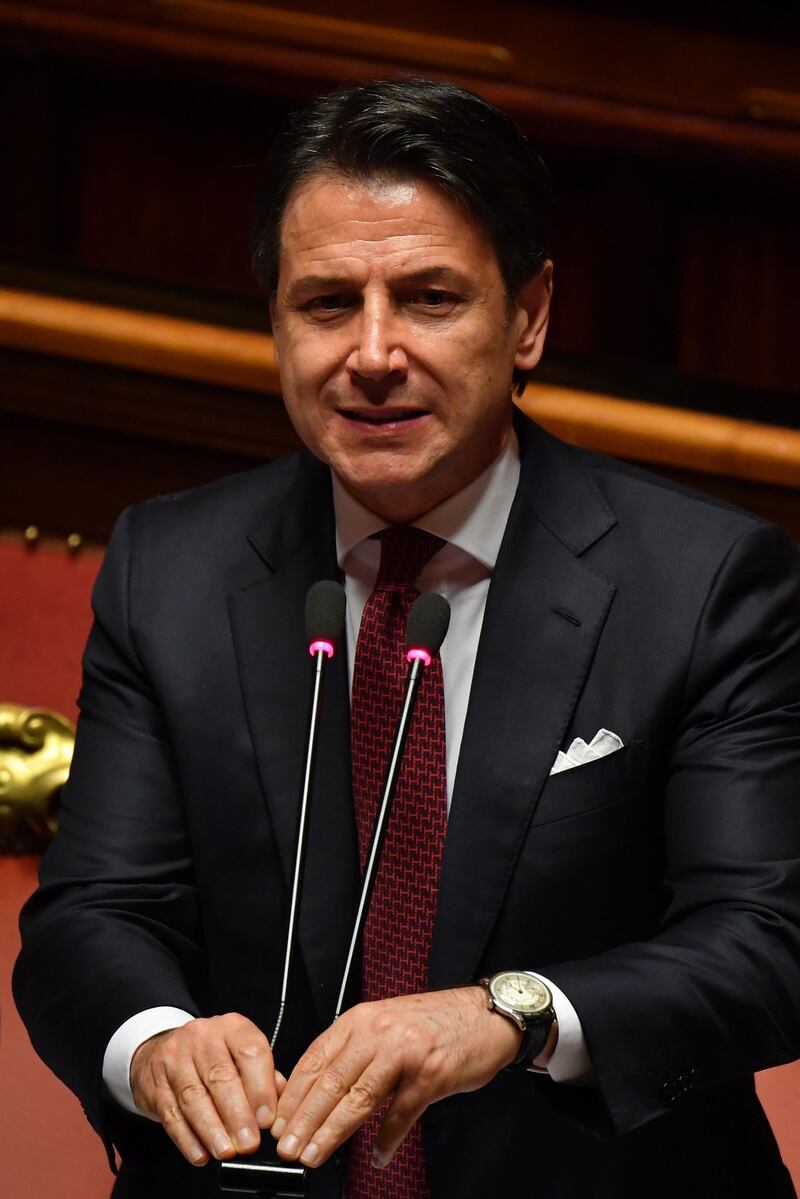The ugly divisions in Italy's fractured coalition government, resulting in the resignation of prime minister Giuseppe Conte, have once again plunged the country into political crisis. Worse, they have strengthened the hand of those seeking to steer Italy further to the right than at any time since the Second World War.
It is just 14 months since Matteo Salvini's far-right League party formed an uneasy coalition government with the anti-establishment Five Star Movement, following a general election that resulted in a hung parliament. Mr Conte, a law professor who vowed to "defend the Italian people", was appointed as a compromise prime minister with Mr Salvini as deputy prime minister. But any hope that he would be able to temper the hardline Mr Salvini's hunger for nationalist anti-immigration policies has been shattered by the events of the past few days.
On Saturday, Mr Conte appeared to score a victory for human decency when Mr Salvini reluctantly allowed 27 young migrants to come ashore after spending two weeks at sea on board a rescue ship. It was a false dawn. Three days later, Mr Conte has resigned, seemingly jumping before he was pushed by Mr Salvini's calls for a vote of no-confidence in his government. Mr Salvini, he said, was guilty of generating a political crisis for personal interest and had been looking for a pretext to return to the polls since his party took 34 per cent of the vote in the European elections in May. Mr Conte's resignation has unfortunately given him that pretext. Once again, Italy is scrambling to form a coalition government. But Mr Salvini, buoyed by his European victory and convinced he can ride the wave of anti-migrant sentiment he has helped whip up, is angling for a snap general election. Italy's best chance of frustrating his ambitions lies in a potential alliance between the more moderately right-wing Five Star Movement and the Democratic Party.
The rise of populist politics across the world is troubling. But if Italy is allowed to fall wholly under the spell of the League then right-wing groups across Europe will be encouraged to redouble their efforts.
Five Star must now demonstrate the humanitarian leadership necessary to reign in Mr Salvini and his self-serving, toxic ambition before it poisons Italian politics for generations to come. If the opposition fails to do so, the repercussions will extend far beyond Italy's shores.





